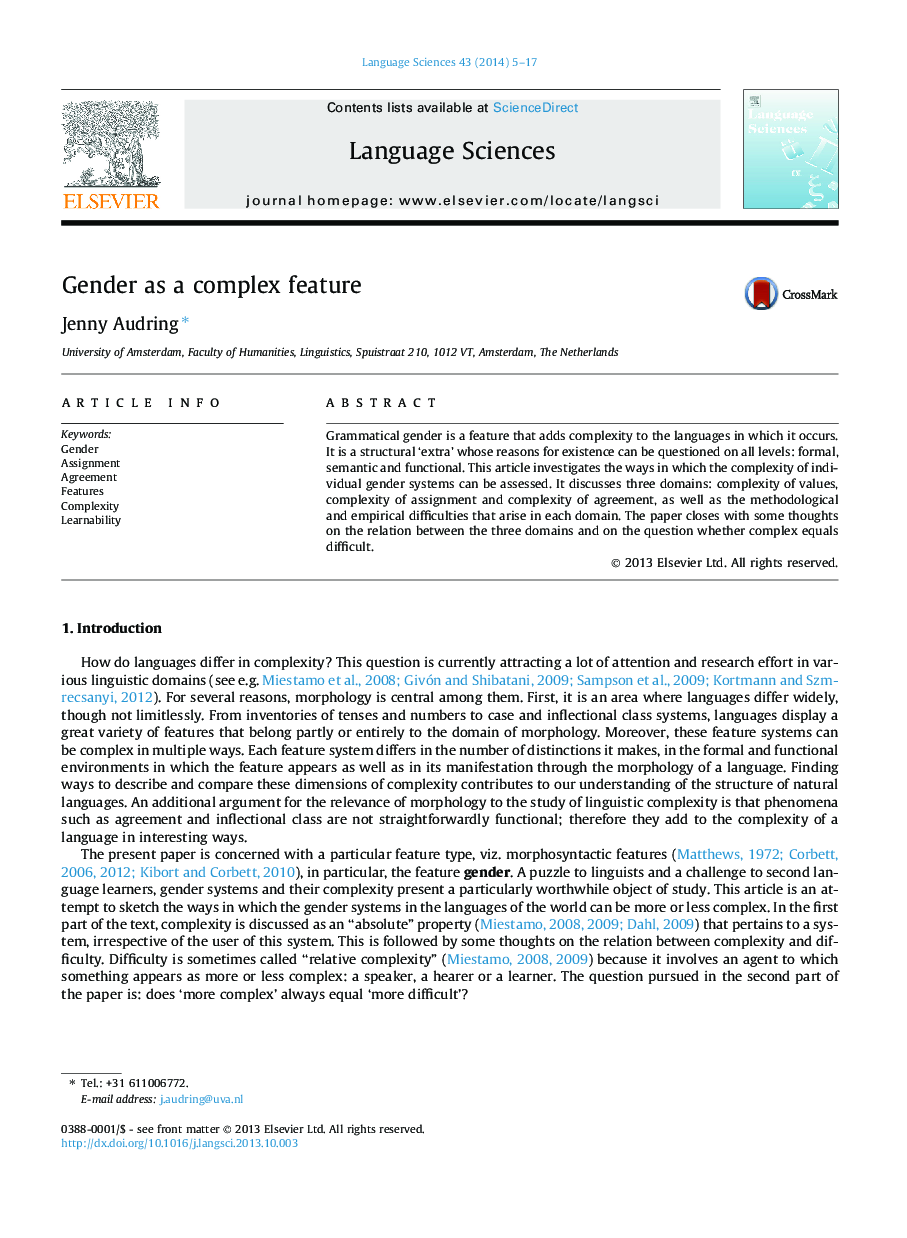| Article ID | Journal | Published Year | Pages | File Type |
|---|---|---|---|---|
| 1103096 | Language Sciences | 2014 | 13 Pages |
•Grammatical gender is a complex feature of natural languages.•The paper discusses ways to assess the degree of complexity of individual gender systems.•The complexity of gender systems can differ along three dimensions: gender values, assignment rules and morphological expression.•Domains differ in whether or not complexity equals difficulty in language acquisition.•Higher complexity of expression facilitates rather than hinders acquisition
Grammatical gender is a feature that adds complexity to the languages in which it occurs. It is a structural ‘extra’ whose reasons for existence can be questioned on all levels: formal, semantic and functional. This article investigates the ways in which the complexity of individual gender systems can be assessed. It discusses three domains: complexity of values, complexity of assignment and complexity of agreement, as well as the methodological and empirical difficulties that arise in each domain. The paper closes with some thoughts on the relation between the three domains and on the question whether complex equals difficult.
